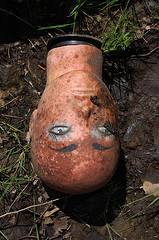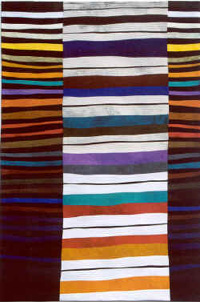 Can atheists be spiritual? I hope that after reading further you will be able to answer this apparently oxymoronic question with a comfortable “YES”.
Can atheists be spiritual? I hope that after reading further you will be able to answer this apparently oxymoronic question with a comfortable “YES”.
The problem, of course, is how you define spiritual. I know, it sounds like Clinton saying “It depends on what the meaning of ‘is’ is.” So why dwell on this confusing word “spirit†when we believe there is no god? Because it’s a useful term with resonances in great and wise traditions. The problem with atheism is that it tends to throw the baby out with the bath water. My intention is to freshen and balance spirit’s meaning between the wisdom of ancient intuitive thinking and current knowledge. I also like the idea of reclaiming it for modern secular use.
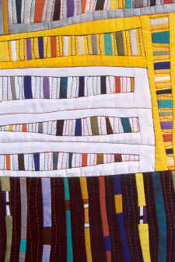 We often use the word spirit in secular vernacular to mean a general quality of a person’s demeanor: “He’s in poor spirits.” We all know exactly what it means. There is no need for an atheist to refute its validity. We know that something is causing that “poor spirit”. You could argue it’s the same as saying “He’s an unhappy person right now.” But what is unhappy about him? Is it his mind, his body? The word spirit fits because it describes something else, neither mind nor body alone. I propose that spirit is a relationship or connection between parts, between mind and body, between self and other. This idea can be expanded further.
We often use the word spirit in secular vernacular to mean a general quality of a person’s demeanor: “He’s in poor spirits.” We all know exactly what it means. There is no need for an atheist to refute its validity. We know that something is causing that “poor spirit”. You could argue it’s the same as saying “He’s an unhappy person right now.” But what is unhappy about him? Is it his mind, his body? The word spirit fits because it describes something else, neither mind nor body alone. I propose that spirit is a relationship or connection between parts, between mind and body, between self and other. This idea can be expanded further.
Fear seems to be a primary reason people turn to religion. I have many fears. I fear failure. I fear rejection. I fear being judged wrongly by others. I fear hate from others. I fear loneliness. Believing in a god gives solace that you are never alone, that you are always loved. We all suffer from the misconception that we are separate from others and that we have to “fit in” to be accepted. So how do we deal with the issue of fear of loneliness?
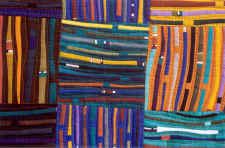 Individuality is the hallmark of free society. We are encouraged to be unique, new, daring, different. But something gets lost in all that separateness: our connection to each other. Think for a moment of the worst pain you have ever suffered. With a little imagination, you can picture someone else on earth suffering as much or much worse. Imagine the love you wish for, then know that someone else suffers the same need. Keeping these little awarenesses close to the heart through a day sooths the emptiness of separateness. With individualism as the pinnacle of freedom, we tend to forget these simple connections. Boundaries of thought between people create loneliness, not being alone.
Individuality is the hallmark of free society. We are encouraged to be unique, new, daring, different. But something gets lost in all that separateness: our connection to each other. Think for a moment of the worst pain you have ever suffered. With a little imagination, you can picture someone else on earth suffering as much or much worse. Imagine the love you wish for, then know that someone else suffers the same need. Keeping these little awarenesses close to the heart through a day sooths the emptiness of separateness. With individualism as the pinnacle of freedom, we tend to forget these simple connections. Boundaries of thought between people create loneliness, not being alone.
Expanding connections further. I once listened to all 9 symphonies of Beethoven on day, beginning in the afternoon and continuing until late evening. As my fatigue encroached from so much listening, my mind opened up to another level. I stopped thinking about the music and started just experiencing it. That’s when Beethoven came rushing deep into my being. The last three symphonies, Nos. 7, 8 and 9, were truly spiritual experiences, poetic inspirations, moments of connection between history, culture, music, myself and my muse. Beyond a connection to something there was also a liberation from something. Boundaries became less distinct between me and the world. I felt as if I were in Beethoven’s head, hearing and writing them with all their meaning and depth and quality.
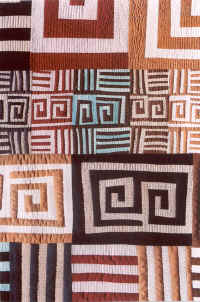 So it is with the spirit of living. It is neither yours nor something separate from you, but an interaction, a relationship between you and the world around you. It is a coaxial cable connection to the universe, a direct link to all that is and is possible.
So it is with the spirit of living. It is neither yours nor something separate from you, but an interaction, a relationship between you and the world around you. It is a coaxial cable connection to the universe, a direct link to all that is and is possible.
The problem is, our natural spirit is often damaged, or at least obscured. The various trappings of life’s maintenance, cultural oppressions, poor upbringing, physical distractions, ego, desire and self-deception cause myriad malfunctions and disconnections. It’s as if the “software†to life is damaged by various “virusesâ€. The usual suspects are judgment, self-deception, hubris, attachment, fear and ignorance. Add to that habits of unclear thinking and living, or the misfortune of traumatic experience, and one faced a veritable minefield of obstacles to experiencing a clear spirit. Luckily, science, psychology and modern meditative self-examination are valuable tools for clarifying spirit. So are the connections experienced through art, poetry, music and the beauty of nature.
But how do we find time to do all this growing in a short life? The atheist’s sense of the finality of death is a problem. I don’t really know if I fear the end of my life. But I want to accomplish so much before then. How can we be happy if we’re always in a hurry to live a full life before we “disappear”?
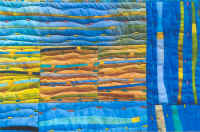 Here again that illusion of separateness comes into play. Thich Nhat Hahn brilliantly used the metaphor of a cloud. The fact is, a cloud does not disappear when it evaporates into humidity or falls as rain. True, the cloud as it was is gone. Its beauty or inspiration or perhaps the shade it offered from the sun is no longer. But the raw matter of the cloud still exists in a different form. So it is with us. We cease to be a living human. But our energy still exists. These observations are small comfort to those whose egos cling to a singular, separate identity. But personally, I feel good knowing that I will continue in some other form.
Here again that illusion of separateness comes into play. Thich Nhat Hahn brilliantly used the metaphor of a cloud. The fact is, a cloud does not disappear when it evaporates into humidity or falls as rain. True, the cloud as it was is gone. Its beauty or inspiration or perhaps the shade it offered from the sun is no longer. But the raw matter of the cloud still exists in a different form. So it is with us. We cease to be a living human. But our energy still exists. These observations are small comfort to those whose egos cling to a singular, separate identity. But personally, I feel good knowing that I will continue in some other form.
Most spiritual traditions refer to something which encompasses All. With growing awareness, we begin to know that we are a part of something much larger than ourselves. We can sense and fathom a connection and unity between all things. I timidly dare to call this great spirit as an extension of the individual one. Here again, a hybrid relationship of scientific humanism with intuitive spirituality can lead us forward. We know that we came from and will return to some common pool, since our matter only changes forms. So, we are from it and of it and will return to it. Scientifically, the atoms are barely differentiated between earth, life and sky. Boundaries blur further.
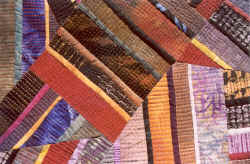 The wisdom of Buddhism teaches that our suffering is caused by attachment to things, time and ego. Ironically, Buddhism’s ultimate goal is to break the illusion of separateness by dissolving the illusion of ego. Things, time and ego are necessary to life, but damaging to spiritual health.
The wisdom of Buddhism teaches that our suffering is caused by attachment to things, time and ego. Ironically, Buddhism’s ultimate goal is to break the illusion of separateness by dissolving the illusion of ego. Things, time and ego are necessary to life, but damaging to spiritual health.
Taoist thinking highlights the unity of opposites: good cannot exist without bad, self without other. Again, relationships. These empirical truths are often elusive to our clinging, categorizing natures. My intention in calling these elusive goals spiritual is to get beyond the clunkiness of analytical thinking and begin to gain a deeper sense of intuition and feelings. Our lives are empty without them.
Spirit is a poetic relationship between awareness and experience, between knowledge and intuition, identity and mystery, connection and separateness. When we embrace our spiritual gifts, our humanist natures can blossom. Who needs god for that?
Like the beautiful quilts photos dotting this article, the connections and relationships between various parts gives rise beauty and meaning.
All quilts photos from the collection The Linear Series by Carol Taylor. For further information, please go to Carol Taylor Quilts.
 What does it mean to be fully present? Many religions and spiritual practices refer to the idea. But it is not necessary to follow any particular practice to acquire the awareness and skill to be present. Yet that skill is useful in becoming more fully human.
What does it mean to be fully present? Many religions and spiritual practices refer to the idea. But it is not necessary to follow any particular practice to acquire the awareness and skill to be present. Yet that skill is useful in becoming more fully human.








